Tapping into Innovations from Clemson University
Download the presentation – Capitalizing on CURF
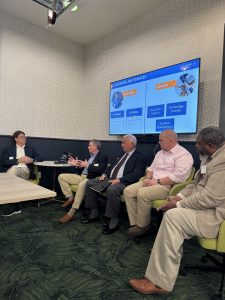 In today’s dynamic business landscape, innovation is the key to success. During our April i4Series networking event at THRIVE Coworking, we learned that world-class researchers, product/service development resources, and commercial-ready innovations are available throughout South Carolina. Clemson University Research Foundation Executive Director Chris Gesswein and Associate Business Development Director Mark Roth discussed how we can capitalize on CURF to find business solutions in our backyard.
In today’s dynamic business landscape, innovation is the key to success. During our April i4Series networking event at THRIVE Coworking, we learned that world-class researchers, product/service development resources, and commercial-ready innovations are available throughout South Carolina. Clemson University Research Foundation Executive Director Chris Gesswein and Associate Business Development Director Mark Roth discussed how we can capitalize on CURF to find business solutions in our backyard.
Whether you’re an entrepreneur, business owner, or an inventor who wants to gain a competitive advantage in your industry, tapping into cutting-edge R&D resources available through Clemson University could accelerate your business toward success.
As an independent, affiliated 501(c)3 and 509(a) organization, CURF bridges the gap between academic innovation and real-world impact by translating innovative research into technology that’s ready for commercial opportunities. With a diverse portfolio spanning various disciplines, including engineering, life sciences, materials science, sustainability, manufacturing, and beyond, CURF manages an extensive intellectual property (IP) portfolio with high-value potential for entrepreneurs and business owners searching for complementary or disruptive innovations to maintain or gain competitive advantage.
Facilitating Innovation:
-
- Licensing Opportunities: CURF manages a robust portfolio of intellectual property assets, including patents, copyright/creative works, software, and IoT platforms, which emerge from research conducted at Clemson University. Business owners and industry leaders can tap into these innovations by licensing Clemson University IP. CURF offers multiple types of agreements to provide the appropriate level of commercial rights to a company for specified technologies.
- Collaborative Research: CURF facilitates partnerships between industry leaders and university researchers. Entrepreneurs can engage in collaborative research initiatives to access specialized knowledge, state-of-the-art facilities, and a pool of talented undergraduate/graduate student researchers, accelerating the development and validation of their innovations.
- Browse Clemson University’s catalog of available technology.
How It Works | Real-life Examples:
- Michael Stokes, Director of Business Development at Infintium Fuel Cell Systems in Greer, joined the panel discussion to share how his company is collaborating with Clemson researchers on a translational grant opportunity and is in active talks to test hydrogen fuel cell technology from Clemson University to enhance its robust product line. Infinitium currently works with global retailers that run 24/7 and rely on an army of electric-powered forklifts to move pallets of products through warehouses. Instead of batteries, Infintium manufactures Power Cells to operate more energy-efficient lift trucks, produce zero emissions, have lower costs, and increase productivity. CURF is excited to be working together with Infintium on this cutting-edge technology.
- Clemson University Professor Dr. Julien Brinkley was also on the panel to highlight how CURF works with researchers to help turn their inventions into spinout companies. Imagine you have a mobility limitation and you’re trying to check in somewhere through a touchscreen device. Screen devices, kiosks, etc. are not inherently accessible to people with disabilities (PWD). Dr. Brinkley invented a sophisticated AI-powered Accessibility Research Platform (ARP) called MyUI to increase the involvement of persons with disabilities in the product development R&D process and promote greater visibility of accessibility-related research projects. The goal is to foster closer interaction and collaboration between PWD and the academic and industrial product development community to make things like touch screens and kiosks accessible. While Dr. Brinkley is passionate about innovative research, it would be nearly impossible for him to take his invention to market and run a company, while educating full-time at Clemson University. CURF assisted Dr. Brinkley in forming a spinout company, MyUI, by connecting him with a business partner from the private sector who is also passionate about artificial intelligence, IoT, and accessibility.
Download the presentation above to learn more about CURF and how it helps grow business in South Carolina by guiding new technologies from concepts to commercialization. Thank you to our friends at the Kim, Lahey & Killough Law Firm for moderating and sponsoring this insightful event.
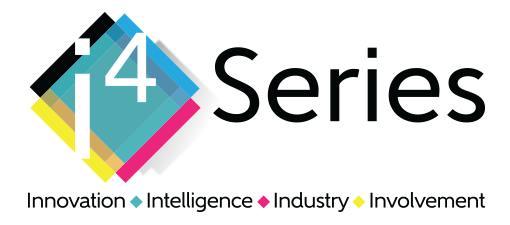

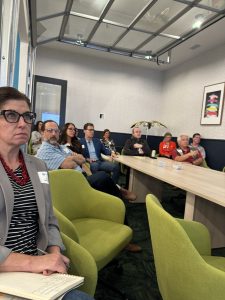
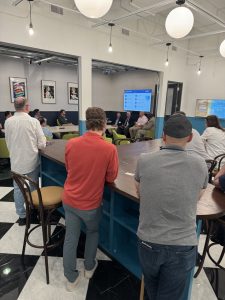
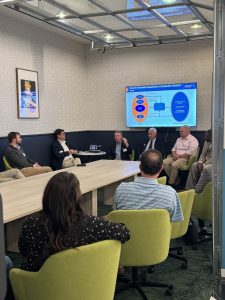

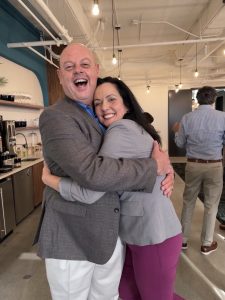
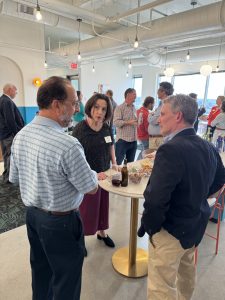
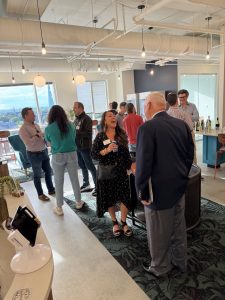
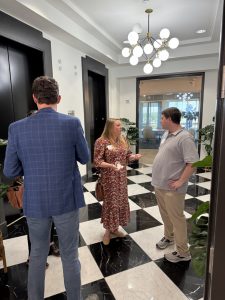
Recent Comments